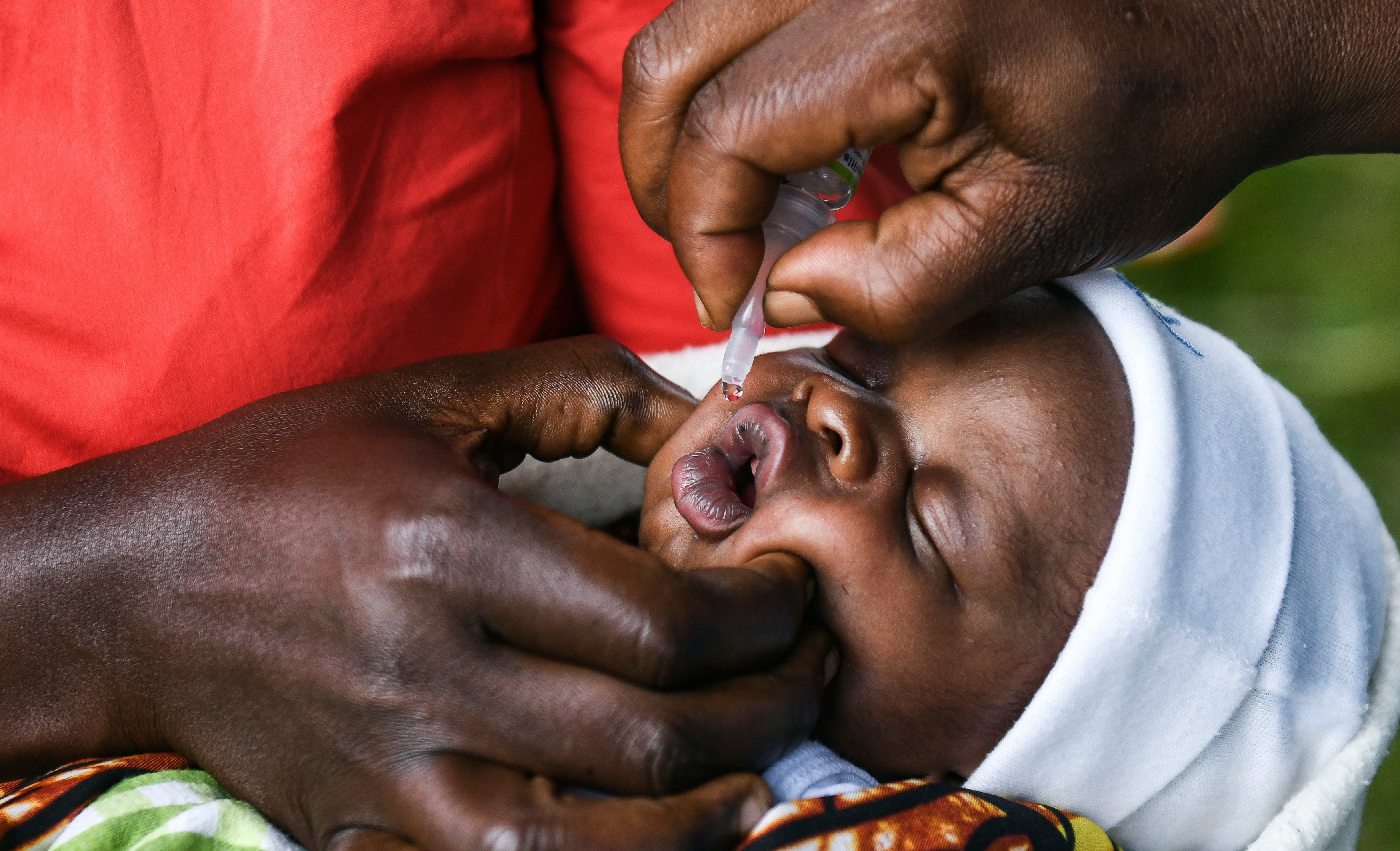Mozambique declares polio outbreak linked to Pakistan
Health authorities in Mozambique have declared a polio outbreak after confirming that a child in the country’s northeastern Tete province had been paralyzed by the disease

Your support helps us to tell the story
From reproductive rights to climate change to Big Tech, The Independent is on the ground when the story is developing. Whether it's investigating the financials of Elon Musk's pro-Trump PAC or producing our latest documentary, 'The A Word', which shines a light on the American women fighting for reproductive rights, we know how important it is to parse out the facts from the messaging.
At such a critical moment in US history, we need reporters on the ground. Your donation allows us to keep sending journalists to speak to both sides of the story.
The Independent is trusted by Americans across the entire political spectrum. And unlike many other quality news outlets, we choose not to lock Americans out of our reporting and analysis with paywalls. We believe quality journalism should be available to everyone, paid for by those who can afford it.
Your support makes all the difference.Health authorities in Mozambique declared a polio outbreak Wednesday after confirming that a child in the country’s northeastern Tete province had been paralyzed by the disease.
The case in Mozambique is the second imported case of polio in southern Africa this year, following a case discovered in Malawi in mid-February. It's the first case of wild polio in Mozambique since 1992, although cases linked to a mutated virus from the oral vaccine were detected in 2019.
The latest case in Mozambique was found in a child who experienced signs of paralysis in late March, according to a statement issued by the World Health Organization.
Sequencing indicates that the case in Mozambique is linked to a strain of polio spreading in Pakistan in 2019, similar to the case reported in Malawi earlier this year.
WHO declared Africa free of the wild polio virus in August 2020 even though numerous countries across the continent have reported outbreaks linked to the vaccine in recent years. There is no difference between the disease caused by the wild virus or the mutated virus from the vaccine.
“The detection of another case of wild poliovirus in Africa is greatly concerning, even if it’s unsurprising given the recent outbreak in Malawi. However, it shows how dangerous this virus is and how quickly it can spread,” said Matshidiso Moeti, the World Health Organization's Africa director.
In response to the case in neighboring Malawi, Mozambique recently carried out two mass vaccination campaigns in which 4.2 million children were vaccinated against the disease, said WHO.
Disease surveillance is being strengthened in five countries: Malawi, Mozambique, Tanzania, Zambia and Zimbabwe. Vaccination campaigns in the coming weeks are planned to reach 23 million children aged five years and below.
Polio is highly infectious, spread mostly via water and largely affects children younger than five years. There is no cure for polio, and it can only be prevented by immunization. WHO and its partners began an effort to eradicate polio globally in 1988 and have missed numerous deadlines to wipe out the disease.